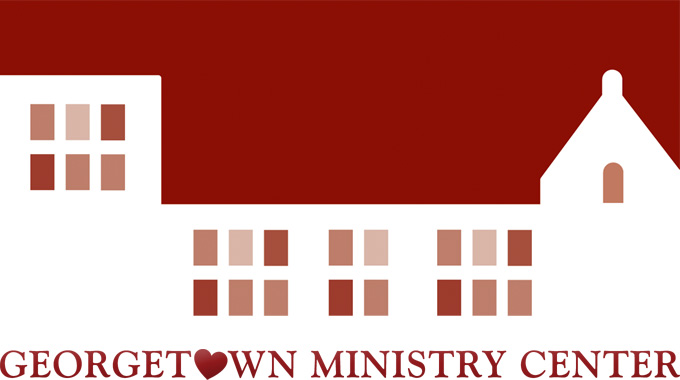At the beginning of fall, I received an email from two Georgetown University students, Doug Badini and Erin Cawley. They were doing a project for their Leadership class and asked if the homeless guests who come in to GMC could use phones or phone cards. I told them that they absolutely could, and a few months later, Doug and Erin came to GMC with a stack of 350 phone cards that they received from AT&T for this project!
I am so impressed by Doug and Erin and by the initiative they took. Both are seniors at the McDonough School of Business at Georgetown University, and both of them are so dedicated and motivated to give back to their community and a variety of ways.
Continue reading to learn more about these two superstars, what they learned from this project, and what words of encouragement they have for others who are interested in volunteering.
Can you tell us about yourself and how you heard about GMC?
Erin: I am a senior in the McDonough School of Business at Georgetown University. I am a double major with my first major being Marketing and my second being Management, Leadership, and Innovation. I am also a member of the school’s inaugural class of Entrepreneurship Fellows. I heard about GMC through my partner Doug.
Doug: I heard about GMC last fall when I was doing research for a group project for one of my classes – “Law and Society” with Professor Sarah Stiles. My group made a short video about “homelessness and permanent supportive housing” in Washington, D.C.
What made you want to do this project?
Doug: Having always been especially aware of the homeless population of D.C., I immediately knew that I wanted to create a project to help them. I also wanted to start a project that wasn’t “typical” such as a clothing drive. After some thought, I came up with the idea of providing cell phones to homeless individuals so that they would be able to contact employers, family, friends, and emergency lines.
How did you go about getting the phone cards?
Erin: I knew that obtaining funding for this project would be difficult and knew that the best option would be to reach out to large organizations because they have specific departments focused on philanthropy. I have a background in public relations and I essentially sent out pitch emails to large organizations in DC. AT&T responded to my initial email saying that they had forwarded it to the DC office of philanthropy. A few weeks later I received a call from the head of the department telling me he was very interested in supporting “A Phone is a Start…” He offered to submit a request for funding proposal and send me 350 free phone cards, each with 100 minutes. His support and kindness blew me away.
What did you learn from this project?
Doug: Throughout this project, I have learned the importance of persisting in a cause that I believe in even when there are many difficulties and challenges along the way. Additionally, I have found that, when my partner and I have inspired others with the vision for our project, people are willing to follow and to help in accomplishing the goals of the project.
Erin: What I took away from this is that people do want to help others, but they can’t help you if they do not know about your organization. Creating awareness of your cause is important in getting others to believe and support your vision. I also learned about the power of persistence and optimistic thinking. Believing in the kindness of others encouraged me to keep reaching out.
What advice do you have for other people who are interested in volunteering but don’t know where to begin?
Doug: I would encourage everyone to volunteer if they are interested in doing so. People who volunteer are very inclusive because they are all doing service for a cause they believe in. So, look for a service opportunity that personally interests you and sign up to do a couple of hours of service. It doesn’t need to be a long term commitment at first but can be a morning of service somewhere in the city.
Thanks, Doug and Erin, for all of your hard work and perseverance!



